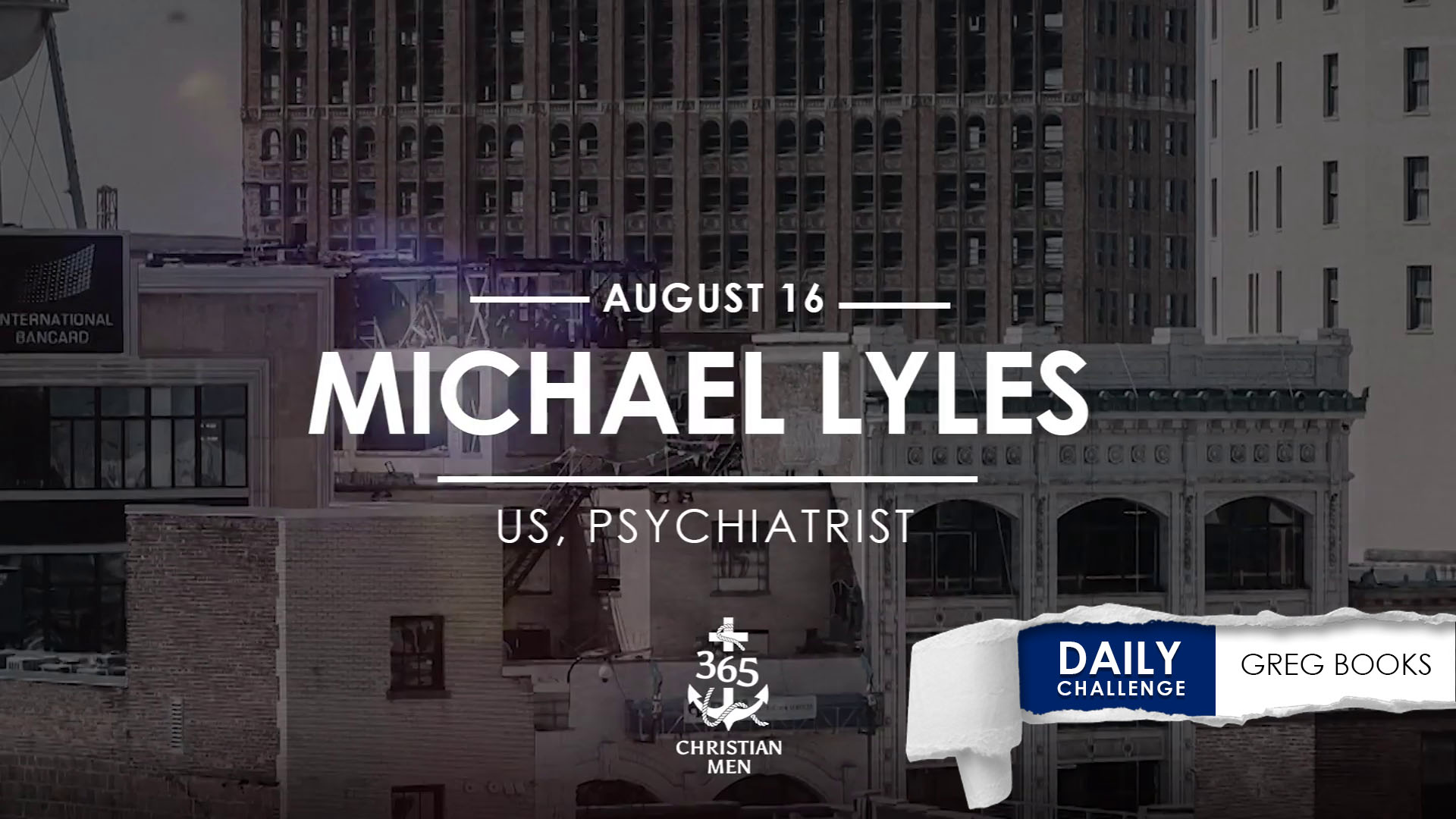August 17. John Mott. John came to faith in Christ when he was an undergrad at Cornell. He was among the first hundred students to sign up in Dwight Moody’s summer conference in Massachusetts. The pledge was, “It is my purpose, if God permit, to become a foreign missionary.”
John was still a student when he turned a Cornell group into the largest and most active YMCA Chapter on American campuses. In 1915, He enlisted 20,000 people to serve soldiers and prisoners, and in 1946, he received the Nobel Peace Prize for his work establishing and building up international Christian-student organizations that worked to promote peace. By 1951, John had enlisted more than 20,000 missionary volunteers. On this date in 1895, John founded the World’s Student Christian Federation.
To keep going, you must choose to rest.
John noted the short blasts of the ship’s horn, a sure signal they were nearing port. Soon he would step onto English soil, plan a conference, and gather influential students he could empower to share Jesus with the world. Evangelism was a high calling. His calling. But at that moment, a slight dizziness blurred John’s vision.
He shook it off.
In the three years since he had established the World’s Student Christian Federation (WSCF), he had circled the globe, hosted conferences, and met with student leaders from more countries than he could quickly count. His wife said he hadn’t taken a real break in years—the last she remembered was their honeymoon. Sure, weariness dogged him. But when one is called of God, shouldn’t he give his all?
John’s friend D. W. thought John needed more rest, and he owned many acres of lake-front property in Canada. And what a generous friend—not only had he offered John’s family any plot they wanted, he had also promised to cut a road to the plot and give John all the logs needed to build a vacation cabin. But John thought: who had time for such things? The Lord’s work needed to be done.
John debarked from the ship and headed for the site of the next conference. The back-to-back schedule of the upcoming conferences would tax him. They would be intense and far-reaching. But with his daily disciplines of healthy eating, physical exercise, and daily time alone with God, John was confident he could persevere. He always had.
John arrived at the conference. Offered his smile and warm handshake to the helpers. But then John’s head swam. Spots appeared before his eyes.
When he awoke, he was on the floor with a painful bruise covering the side of his face and one eye. When he had fallen, he had hit a stand.
Somebody called a doctor—and that wise man ordered John to bed. John couldn’t continue with the conference plans. Diagnosed with a nervous breakdown, he wondered if his years of service to God were over. He couldn’t stand that thought.
For ten years, John had trusted his iron constitution. But he had pushed his body farther—and longer—than it could sustain. He lay in bed. Rested. Prayed. Studied the relationship of periods of rest to staying-power in one’s work.
Eventually, he was strong enough to go home. Convinced God had designed his body for more rest—and that it would help, not harm, his ability to serve, John took D. W. up on his offer of a vacation home. On a secluded island in the Canadian wilderness, John built a sturdy family cabin.
Throughout the rest of his life, John continued to travel. But each summer, John and his family took extended vacations. No phone. No local telegraph. No easy access. John completely unplugged.
He had always worked hard, and that didn’t change. But the new John, the one who had learned to rest, kept going strong for the long haul. He clocked nearly two million miles of foreign travel and recruited tens of thousands of students to help him spread the gospel of Jesus.
His service, fueled by rest, spanned more than half a century, and in 1946, fifty-seven years after the break-down, John received the Nobel Peace Prize for creating a “peace-promoting religious brotherhood”throughout the world.
“Then Jesus said, ‘Let’s go off by ourselves to a quiet place and rest awhile.’ He said this because there were so many people coming and going that Jesus and his apostles didn’t even have time to eat” (Mark 6:31 NLT).
Will you finish strong? To keep going, you must choose to rest.
Matthews, Basil Joseph. John R. Mott, World Citizen. New York: Harper and Brothers, 1934.
The Norwegian Nobel Institute. John R. Mott: Facts. The Nobel Prize. Accessed June 17, 2020. https://www.nobelprize.org/prizes/peace/1946/mott/facts.
Story read by: Peter R Warren, https://www.peterwarrenministries.com/
Introduction read by: Daniel Carpenter
Audio production: Joel Carpenter
Editor: Teresa Crumpton, https://authorspark.org/
Project Manager: Blake Mattocks
Copyright © 2020, 365 Christian Men, LLC. All rights reserved.














